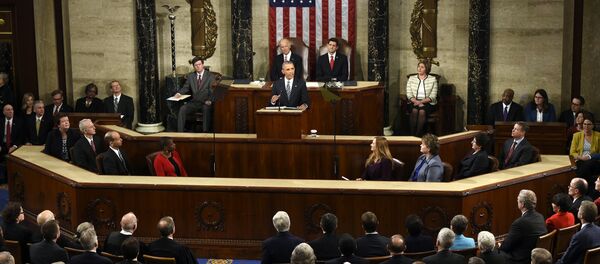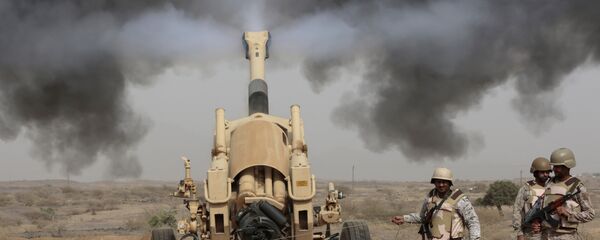The law — the Justice Against Sponsors of Terrorism Act (JASTA) — will now allow the families of the 9/11 victims to hold Riyadh liable for the actions of the Saudi nationals involved in the attacks.
Daniel R. DePetris, an analyst at Wikistrat, Inc., a geostrategic consulting firm, believes that US lawmakers have put themselves in an awkward position.
He recalls that last week the very same Senate that overrode Obama's veto on JASTA blocked the proposal by Senators Rand Paul (R-KY), Mike Lee (R-UT), Al Franken (D-MN), and Chris Murphy (D-CT) to halt a $1.15 billion sale of Abrams tanks and other military equipment to Saudi Arabia.
The senators' objections against the arms deal are understandable in the light of Saudi Arabia's involvement in funding Islamic extremists and the country's war against Yemen, the poorest Middle Eastern nation.
"If you're dazed and confused, you should be. Talk about selective morality: it doesn't make a whole lot of sense to sell heavy weapons platforms to a country that, a week later, is practically designed by the US Congress as a state sponsor of the worst terrorist attack on American soil," DePetris emphasizes.
The US analyst underscores that the Senate's latest move has added insult to injury, since Riyadh is "already eyeing the US with suspicion" after Washington struck the nuclear agreement with Iran.
"King Salman is probably beginning to think of US officials as a bunch of hypocrites who will say one thing for political expediency, but do another," he argues.
Commenting on the issue, Jennifer Hunt of the National Security College, Australian National University, warned in her op-ed for The National Interest that "the bill establishes a dangerous precedent of allowing victims to hold liable a state for the actions of its citizens."
"If other nations pass reciprocal measures, the United States could face politically motivated legal retaliation from foreign governments," she claimed.
She echoed CIA Director John Brennan who warned Wednesday that the new legislation will open the door for the other nations to detain American officials.
"[JASTA] will have grave implications for the national security of the United States. The most damaging consequence would be for those US government officials who dutifully work overseas on behalf of our country. The principle of sovereign immunity protects U.S. officials every day, and is rooted in reciprocity," Brennan stressed as quoted by The Washington Free Beacon.
"If we fail to uphold this standard for other countries, we place our own nation's officials in danger. No country has more to lose from undermining that principle than the United States-and few institutions would be at greater risk than the CIA," the CIA chief underscored.
"US taxpayers can no longer support Gulf Arab security and fight its wars, and Trump's so-called isolationist foreign policy reflects this economic reality more than any national introspection or conscience," Maavak told Sputnik.
In April 2016 Saudi Arabia's Foreign Minister Adel Al-Jubeir threatened Washington that Riyadh would sell off up to $750 billion in US Treasures and other assets, to deal a blow to the US economy, if a bill allowing families of 9/11 victims to sue Saudi Arabia is passed in Congress.
The question remains open whether Riyadh will put its threat into practice.




